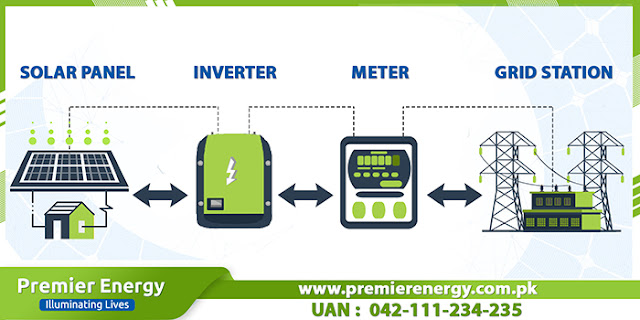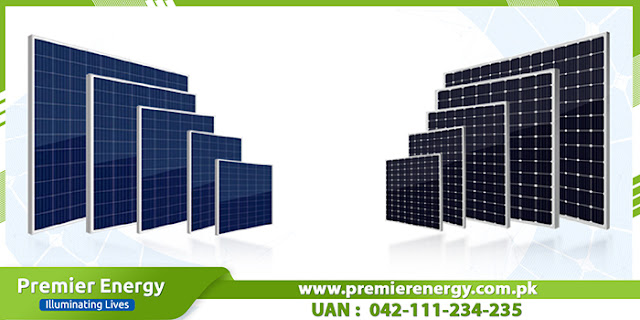Parts Required For a Solar System
An ever-increasing number of people are choosing to install solar panel systems. Their stimulus is to decrease long-shot energy costs while limiting their carbon impression. This quick progression has originated mostly from enhancements in the productivity and lower cost of the most recent solar energy systems. All in all, what is needed to make an effective solar system arrangement for home use? What parts are required?
What Is A Solar Panel System?
Rooftop
mounted solar panels absorb and convert the energized photons of normal
daylight into usable electricity, thus also called PV, or photovoltaic, solar
energy system. Home establishment of an excellent solar system can reduce or
completely end reliance on the local area power network that provides
electricity to power your home. The consequence of a private solar
establishment is a splendid, environment-friendly power source that requires
negligible upkeep with savings that will pay for the system within a few years.
When your system's price is paid off, you will have many years of free energy.
The parts of a residential solar power system include:
- Solar Panels
- Solar Inverter
- Solar Racking
Solar Panels
The
PV panels themselves are the vital components of a solar system. The
fundamental attributes to consider are the effectiveness, cost, warranty, and
technology type. The two kinds of solar plates generally appropriate for
residential solar establishments are monocrystalline and polycrystalline
panels. These perform likewise, however, the monocrystalline is more proficient
and so more costly.
The number and arrangement of solar panels are subject to:
- Your energy requirements
- Usable rooftop area
- Surroundings
- Maximum daylight you receive
- Efficiency rating of the solar panels
- Availability of net metering
The potential to sell back electricity to the grid for credits is known as net metering.
An
expert solar installer can help ascertain the number of solar modules to make
the most viable framework, or you can check the system table.
Solar Inverter
Solar Inverters
are the systems that convert the direct current (DC) delivered by the solar
modules into the alternating current (AC) that a house requires to operate.
Inverters come in three kinds:
String or central inverters: They are the most economical, however, can be a bad choice if there is partial shading on the rooftop.
Microinverters: These inverters are more costly, and are affixed to each solar panel, allowing maximum production from the remaining panels even if one or more are covered by the shade.
Power optimizers: Installed in each panel, they upgrade the DC output of each PV module, which at that point goes on to a string inverter to be converted to AC power. They are more affordable than microinverters, however, more costly than string inverters.
Solar Racking
Solar
panels are not fixed to the rooftop directly. Solar modules are mounted on
racking frameworks, which are connected to the rooftop and designed for the
ideal level of sun exposure.
What Amount Will A
Solar System Cost?
We
can evaluate a couple of factors to decide the right framework. It's critical
to note that the gear may not be the most costly part since the expert
installation requires time, preparation, knowledge, and supplies. Cost per watt
and assessed cost per kWh are usually utilized measurements to determine the
cost of the system. Likewise, remember that while a common compensation period
might be roughly four to five years, a few manufacturers offer a 25-year
guarantee. Decide based on the utility costs you could save through twenty
years.
Check out the prices you can save from your residential solar system.
What is the Best Residential Solar Energy System?
It
is subjective to say what the right solar system is for YOU because it depends
upon a number of factors that vary from person to person. You can never be sure
without knowing all of them. For example maybe a 5kW solar system is the
perfect choice for your neighbor because,
- He bought highly productive and efficient
equipment
- It fulfills the electricity needs of his
house
- The provided warranty of the products
used to cover damages is for a longer period
So
it differs from person to person. You have to make sure that the system you are
buying fulfills your electricity needs, because this is the most essential
thing. Then you need to find out the warranties you are getting and the
installation costs. Only then you will be able to find out which system you
should get.
The Common Solar System Cost in Pakistan
There are certain things that you need to keep in mind while doing a cost analysis. These factors are as below;
· The quality of the system and the products, you definitely don't
want to invest in a bad product
· The warranty you are getting, since it goes a long way
· The manufacturer and the type of products in use




Comments
Post a Comment